
The Official Story is a 1985 Argentine historical drama film directed by Luis Puenzo and written by Puenzo and Aída Bortnik. It stars Norma Aleandro, Héctor Alterio, Chunchuna Villafañe and Hugo Arana. In the United Kingdom, it was released as The Official Version.
Marco Bechis is a Chilean-Italian film screenwriter and director. His film Garage Olimpo was screened at the 1999 Cannes Film Festival in the Un Certain Regard section.
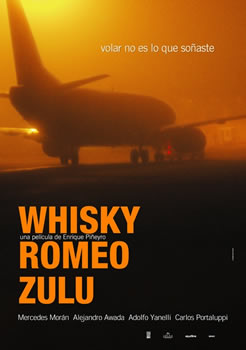
Whisky Romeo Zulu is a 2004 Argentine drama film directed by Enrique Piñeyro and written by Piñeyro and Emiliano Torres. Verónica Cura was the executive producer and Enrique Piñeyro was the producer.
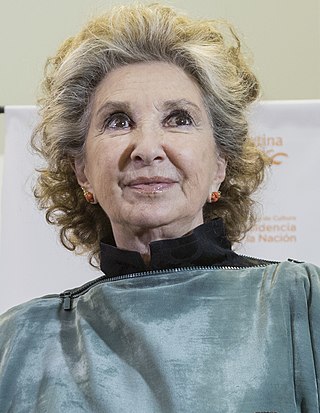
Norma Aleandro is an Argentine actress. She is considered one of the most celebrated and prolific Argentine actresses of all time and is recognized as a cultural icon in her home country.

Libertad Lamarque Bouza was an Argentine actress and singer, one of the icons of the Golden Age of Argentine and Mexican cinema. She achieved fame throughout Latin America, and became known as "La Novia de América". By the time she died in 2000, she had appeared in 65 films and six telenovelas, had recorded over 800 songs and had made innumerable theatrical appearances.

Daniel Burman is an Argentine film director, screenplay writer, and producer.

Cinema of Argentina refers to the film industry based in Argentina. The Argentine cinema comprises the art of film and creative movies made within the nation of Argentina or by Argentine filmmakers abroad.

Tango is a 1998 Argentine-Spanish musical drama film written and directed by Carlos Saura and starring Miguel Ángel Solá and Mía Maestro. It was photographed by cinematographer Vittorio Storaro.
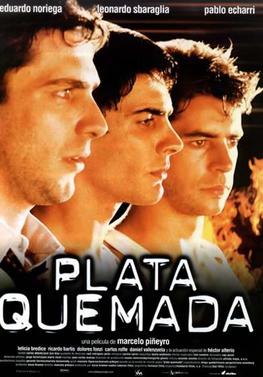
Burnt Money is a 2000 action thriller directed by Marcelo Piñeyro and written by Piñeyro and Marcelo Figueras. Starring Leonardo Sbaraglia, Eduardo Noriega, Pablo Echarri, Leticia Brédice and Ricardo Bartis, it is based on Ricardo Piglia's 1997 Planeta prize-winning novel of the same name. The novel was inspired by the true story of a notorious 1965 bank robbery in Buenos Aires.

Marcelo Piñeyro is an Argentine award-winning film director, screenwriter, and film producer.

Chronicle of an Escape, also known as Buenos Aires, 1977, is a 2006 Argentine historical drama film directed by Israel Adrián Caetano. The screenplay is written by Caetano, Esteban Student, and Julián Loyola, based on the autobiographical book Pase libre – la fuga de la Mansion Seré written by Claudio Tamburrini. The film was produced by Oscar Kramer and Hugo Sigman, and stars Rodrigo de la Serna, Pablo Echarri and Nazareno Casero. The film tells the true story of four men who narrowly escaped death at the hands of a military death squad during Argentina's last civil-military dictatorship (1976-1983).
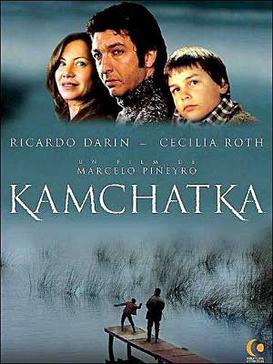
Kamchatka is a 2002 Spanish-language historical drama film directed by Marcelo Piñeyro and written by Piñeyro and Marcelo Figueras. It stars Ricardo Darín, Cecilia Roth, Tomás Fonzi, Héctor Alterio and Leticia Bredice.
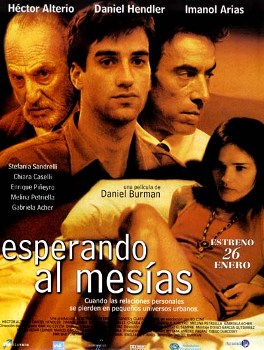
Waiting for the Messiah is a 2000 Argentine, Spanish, and Italian comedy drama film directed by Daniel Burman. The film features Daniel Hendler, Enrique Piñeyro, Héctor Alterio, Melina Petriella, Stefania Sandrelli, Imanol Arias and Dolores Fonzi, among others.
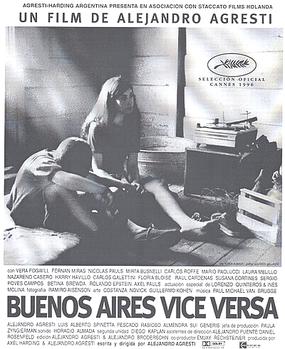
Buenos Aires Vice Versa is a 1996 Argentine and Dutch dramatic film, written and directed by Alejandro Agresti. The film was produced by Alejandro Agresti and Axel Harding, and co-produced by Emjay Rechsteiner.
Emiliano Torres is an Argentine film director, screenplay writer and producer.
Sons and Daughters is a 2001 Argentine drama film directed by Marco Bechis. Two years after Olympic Garage, this is the second film of Bechis focused on the Argentina's Dirty War.
Sur (South) is a 1988 Argentine drama film written and directed by Fernando E. Solanas. The film features Susú Pecoraro, Miguel Ángel Solá, Philippe Léotard, Lito Cruz, Ulises Dumont among others.

Captive is a 2003 Argentinian film that concerns itself with what happened to the children of the people killed after the 1970s military coup. The film states it was made with the support of Argentine National Institute of Cinema and Audiovisual Arts. Captive was an award winner at the 2003 San Sebastian Film Festival.
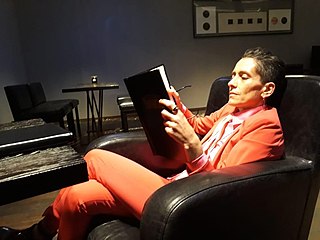
Albertina Carri is an Argentine film producer, screenwriter and director, as well as an audiovisual artist.
El Olimpo was a clandestine detention center in Buenos Aires and used during the Dirty War in Argentina. Although it operated for only five months, from August 1978 to January 1979, about 700 people were illegally detained there, of whom only 50 survived. Jorge Fontevecchia, founder of the newspaper Editorial Perfil, was detained there.















